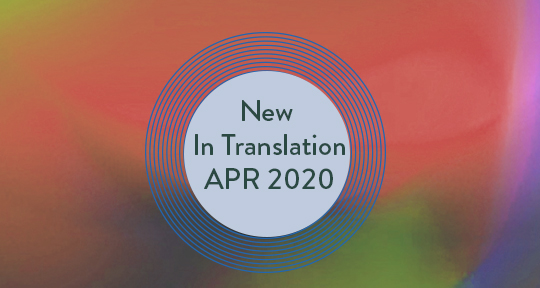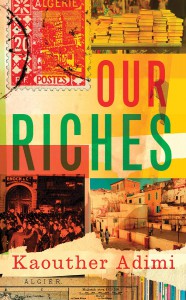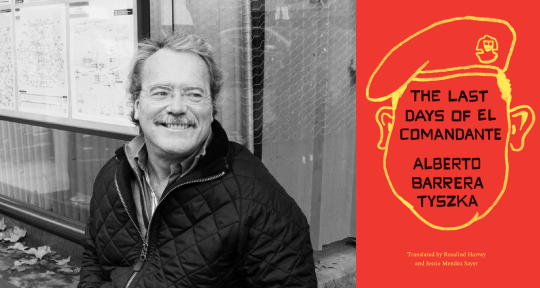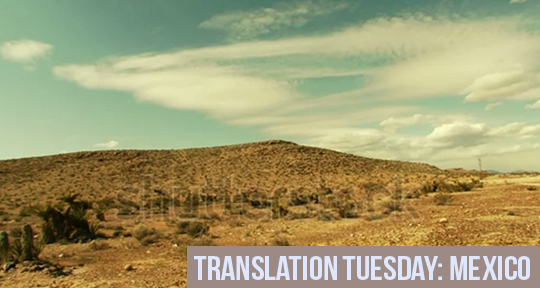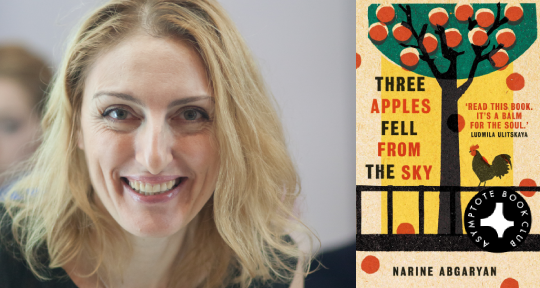As COVID-19 continues to leave devastation in its wake, one is reminded of the importance of bearing witness. As Paul Celan said: “It, the language, remained, not lost, yes, in spite of everything.” In our new Saturday column, In This Together, we at Asymptote are gathering a series of texts from writers around the world—poetry, journals, essays, and all the other tools language gives us to see beyond the surface of things. Today, in our inaugural post, we present diary entries from French theatre director Wajdi Mouawad, translated by assistant blog editor Sarah Moore. Below, Moore gives us an introduction and context to Mouawad’s life and work:
Wajdi Mouawad has been the director of La Colline theatre in Paris since 2016. One of five national theatres in France, La Colline is renowned for its mission to stage contemporary works. Since taking up this role, Mouawad has programmed work by writers such as Édouard Louis, Vincent Macaigne, Elfriede Jelinek, and Angélica Liddell. Last month, I went to see Anne-Marie la Beauté (Anne-Marie the Beauty), a nostalgic, bittersweet monologue written by Yasmina Reza, one of France’s most successful contemporary playwrights. The following week, Friday March 13, I had tickets to see the new play by Peter Handke, Les Innocents, Moi, et l’Inconnue au bord de la route départementale (The Innocents, I, and the Stranger on the side of the departmental road). Handke, winner of the 2019 Nobel Prize in Literature, is a contentious figure, and I was curious to see what I’d make of this new text. However, hours before the performance was due to start, the French government limited gatherings to fewer than one hundred people in an attempt to curb the spread of coronavirus. And since March 17, the country has been on a strict lockdown. Now, beside each listing for Reza and Handke’s plays reads “—annulé.” Mouawad, like everyone else, is on lockdown, with life on pause. How does a playwright and director respond when his theatre must close its doors to the public? Since the first day of this lockdown, Mouawad has been keeping an audio diary, published on the website of La Colline. Through his diary, Mouawad reflects on this unprecedented situation, on how he can continue to write and engage with communities, and as he says, “how to turn the time of lockdown into a time that’s alive.”
Excerpts from “Lockdown Diary — Day One”
by Wajdi Mouawad
Washing them twice an hour and for thirty seconds each time. I’ve never had such clean hands as during these days of solitude. And yet, despite the cleanliness of my hands, I must be responsible for something. Lady Macbeth, unwittingly. But then, what is this stain which won’t go and which I can’t stop scrubbing? What crime have I committed? What king have I slain? Unless, reflecting my own era, I’m nothing more than one of the thousands of Pontius Pilates (another character obsessed by the cleanliness of their ten fingers,) who is wondering what all this has to do with them. In this case, what is it about washing my hands that today carries the risk of being put to death? Which Christ am I sending to his crucifixion? What is sublime and who dies? What departs? What spirit of the forest is deserting the world? What must I, from now on, mourn? Carefreeness. It’s been two weeks since I can say I’ve been feeling carefree: climate, fire, violence against women, liberalism. If the world I’m giving up through lockdown was that one, why wish this lockdown to end as quickly as possible? To return to what kind of world? Between a world that crushes me, and one that turns me today into a statue, how to prevent a state of shock, without a reply to this question: what to do with this lockdown? I open my eyes this morning after wandering all night long in the bois de Vincennes. What is happening to us? On this first day of lockdown, taking stock of the situation is impossible. It’s like writing yourself in reverse. I don’t know. I don’t know what I’m feeling. I don’t know where the measure of everything is. I don’t know if my lucidity is panic. In the evening, I go to bed and tell myself that without even knowing, I perhaps won’t see summer. So many of us won’t see it. Overwhelming and collective sorrow. I can’t reassure myself with the idea, increasingly fragile, that this only affects the elderly. And even if that were true, how can the death of others be reassuring? And anyway, how could we live in a world without the elderly if all the elderly were to disappear? For an hour, I’m overcome by unease and everything comes back to me. A civil war won’t stop the epidemic and misfortune doesn’t wait its turn. The gods don’t exist. No logic, other than nature and her disruption. Confused thoughts. Feelings in disarray. Multiple sensations. Like so many pieces of a puzzle, of no precise image except a fog, none of which fit perfectly together. Fear, sadness, anxiety, and memories. READ MORE…


